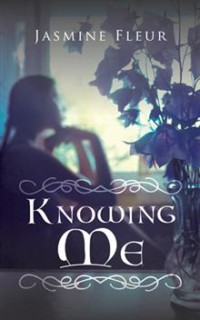Title: Knowing Me
Author: Jasmine Fleur
Publisher: iUniverse
ISBN: 978-1-5320-0514-5
Pages: 146
Genre: Memoir / Non-Fiction
Reviewed by: J.W. Bankston
Buy on Amazon
Pacific Book Review
There are many reasons to read a confessional memoir. They can offer insight while providing a window into the unfamiliar. At the same time, they remind us that we are not alone, that others have survived similar harsh experiences. There are just as many reasons to write a memoir as there are to read one. Still, one motivation is often ignored. The truth is, pen and paper provide their own form of therapy. Indeed, a memoirist on a quest for self-awareness might find as much peace as they would after logging hours upon an analyst’s couch. As a bonus, readers are invited to tag along on the writer’s journey of self-discovery. In “Knowing Me,” a new memoir from Jasmine Fleur, this trek is harrowing but ultimately redemptive.
“… things have happened to me that make me feel dirty inside,” Fleur admits early on, “chewed up and sometimes so small that I think about hiding away from it all.” Instead of hiding in the shadows, she illuminates her past and carefully examines her unexamined life. Unfortunately, her autobiographical archeological examination is incomplete. Like a paleontologist working with just the barely preserved claw of a raptor, she must draw conclusions without the entire picture. Before she turned ten, Fleur’s memory is a dark chasm. It’s normal not to remember much from preschool. But the early tweens seems awfully old for the beginning of memory. Given what Fleur details in her book, it’s a fair guess she hasn’t repressed memories of visiting the zoo or buying new dresses.
“Knowing Me” presents an unusual portrayal of dysfunction. The author details hunger pangs and relentless poverty. Yet her father was a professional. His inability to provide was more from a mixture of pride and prejudice than a lack of skills. He resides in an imaginary construct, a world of wealth and privilege which he is certain will soon become reality. Instead his promises of future riches are like most of his assurances –– as empty as his daughter’s belly. Because she both witnesses and survives abuse, young Jasmine Fluer retreats into her own imagination. Like her father, she finds ways to leave reality behind. This experience was good training for the future writer –– although it surely doesn’t make up for the trauma. As she gets older, she learns to stand up for herself and find her way. Yet she manages a fair amount of empathy even for her abusers.
Other books and authors tell the truth as best they can but that even the best memoirs don’t masquerade as fact. Sometimes they let you in on how the author’s own prejudices mold memories in altered ways. Fluer is honest about this, as she appears to be in most of her accounts. Readers drawn to honest, heartfelt memoirs will find Fleur’s account rewarding and even inspiring.



Follow Us